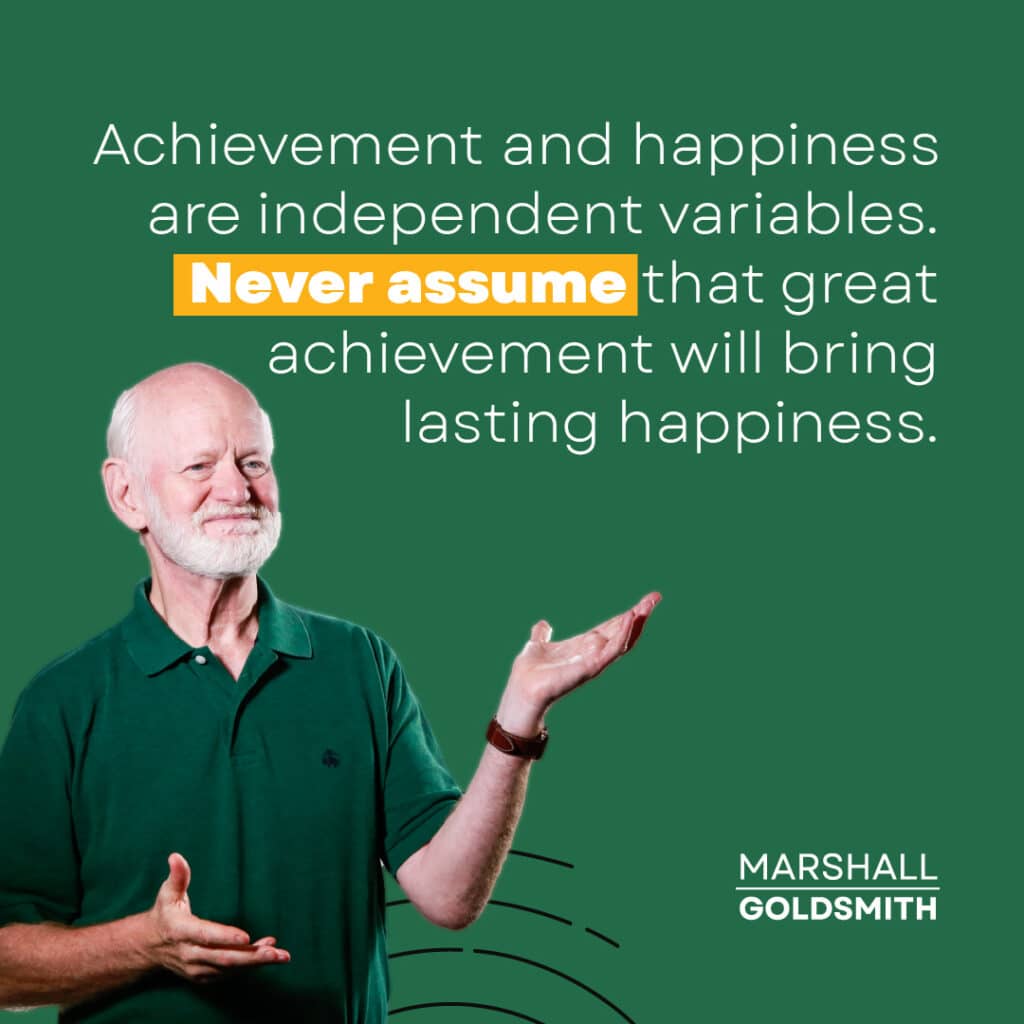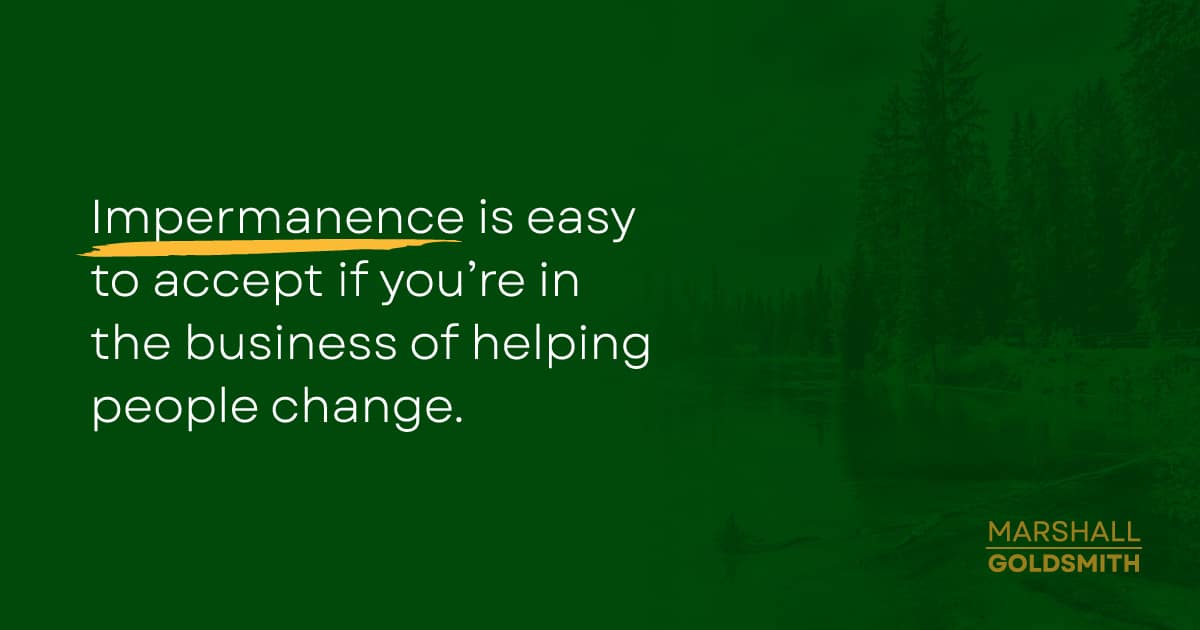Playing Favorites By Marshall Goldsmith There’s a reason I devote...
Are you a highly responsive person? Are you so easily triggered that you respond in an uninterrupted A to B sequence that leaves no breathing room for hesitation, reflection and choice?
How does a trigger actually work within us? Why do we respond seemingly without even thinking? Are there moving parts between the trigger and the behavior? If so, what are they? And how can we gain access them?
I would suggest that the more aware we are, the less likely it is that triggers will prompt hasty unthinking responses that lead to undesirable consequences.
In becoming more aware, I’ve found that it is the little moments that trigger some of our most outrageous and unproductive responses: The slow line at the coffee shop, the cousin who always asks why you’re still single, the neighbor who doesn’t pick up after her dog, the screaming baby on the plane. These little moments trigger some of our basest impulses.
Some of us suppress the impulse. We disarm the moment. Others of us do not. We can’t resist our impulse to confront the issue, to show our frustration, to make it known that we are triggered.

Even more perilous are the small triggering moments with our families and best friends. We feel we can say or do anything with these folks. They know us. They’ll forgive us. We don’t have to edit ourselves. We can respond true to our impulse. That’s how our closest relationships often become trigger festivals with consequences that we rarely see in any other parts of our lives—the fuming and shouting, the fights and slammed doors, the angry departures and refusals to talk to each other for months, years, decades.
For example, your teenage daughter borrows the car and two hours later calls to say it’s been stolen. She left the keys in the car while she ran into a convenience store. As a parent, how do you respond? Your daughter wasn’t harmed. She’s not in danger or legal peril. She’s a victim. At worst, you’ve lost property. What’s your first impulse?
You can get angry. You can do a variation on “I told you so” or “You need to think about what you’re doing,” reinforcing the message that 1) you know best or 2) your daughter is not as smart as she thinks she is. You can be consoling. You can ask, “Do you need a ride home?” You have options. What do you choose?
I don’t have the perfect answer. I do know that the phone call is a supercharged triggering moment, even though it is brief and unexpected. How you respond is important and consequential. Will this unfortunate event trigger more damage in the relationship between parent and child, or will something good come out of it? Will you give in to the perfectly natural impulse to be angry, or will you take a breath and make a smarter choice?
In the series of video blogs that accompany these articles, I’ve been interviewed byNathan Lyons http://www.spotoninterviews.com. Nathan is a high potential from Gen Y who sought my insights on a number of topics from my book Triggers with the critically important angle of “advice I might provide to the younger generations”. I’m excited to share this series of short interviews with you and of course I hope you enjoy my written thoughts on the topics as well!

Adding Too Much Value Won’t Get You There By Marshall...
C-Suite Master Class: No, But, However By Marshall Goldsmith Continuing...
The Doerr Institute: Expanding the Market for Coaches By Marshall...
Making Leadership Development Part of the College Degree at Rice...
Sanyin Siang – Winner of the Thinkers50 Marshall Goldsmith Coaching...
Thinkers50 Marshall Goldsmith Distinguished Achievement Award in Coaching – Nominees...
Leading with Influence: What Is Influence360°? By Marshall Goldsmith Founder...
Are You a Dominator, Manipulator, Persuader or Influencer? By Marshall...
Leading with Influence: Redefining Modern Influence Part 2 By Marshall...
My mission is simple. I want to help successful people achieve positive, lasting change and behavior; for themselves, their people, and their teams. I want to help you make your life a little better. With four decades of experience helping top CEOs and executives overcome limiting beliefs and behaviors to achieve greater success, I don’t do this for fame and accolades. I do this because I love helping people!
As an executive educator and coach, I help people understand how our beliefs and the environments we operate in can trigger negative behaviors. Through simple and practical advice, I help people achieve and sustain positive behavioral change.